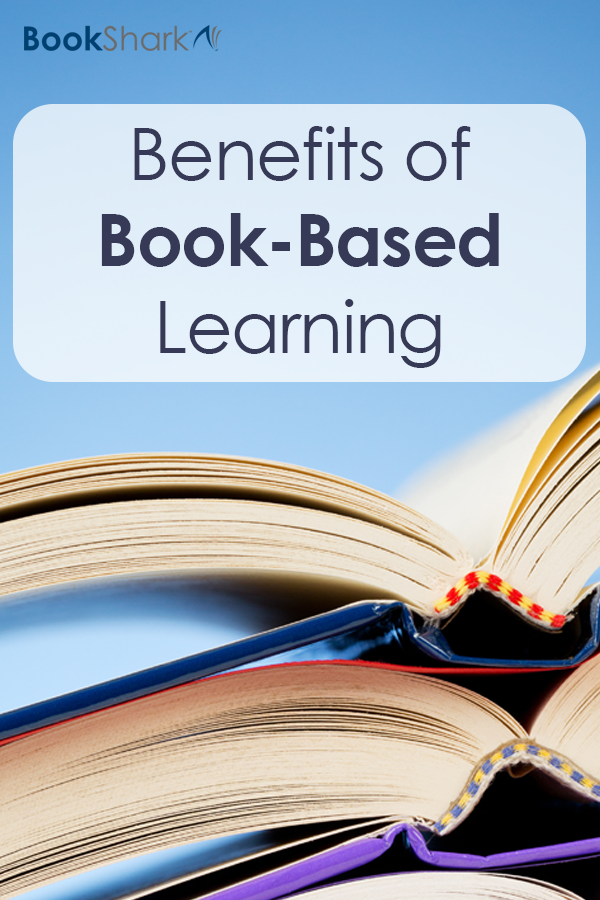




Benefits of Book-Based Learning

Think back to your favorite textbook growing up. You probably read it word for word, right?
The weight of textbooks in our backpacks is often more memorable than the textbooks themselves. Not that they aren’t chock full of information. On the other hand, books like the fiction and non-fiction literature that make up the BookShark curricula conjure up images, characters and narratives. Certain books are so meaningful and memorable that when recalling their stories, the characters feel more like real people who you knew in your life than constructed characters from lines of text.
What if one of those special childhood books took place during the Civil War? It’s likely that the reader would learn about the Civil War in a more intimate way than they would through textbook. A young reader would “meet” the characters that represent the opposition, the leaders, the enslaved, the soldiers and the women and children left behind. The characters become real, and the reader feels empathy for them. The reader also learns a holistic view of the Civil War, and can place the event in their memory quite clearly.
Why Literature-Based Learning Works
This notion of experiential learning through reading is the basis of a literature-based curriculum. Reading a novel or a biography allows students to become deeply engaged in a story, and understand a wide range of topics more intimately from a more intimate perspective.
The engagement doesn’t end with the student and the book. Great books spur engaging conversations between teachers — in this case parents—and children. Parents can ask questions about the books, add their own knowledge about a place and time represented, and easily see where the child has gaps in understanding. This interaction is core to homeschooling through BookShark’s book-based learning program. Students receive individualized attention, genuine verbal interaction, and easy engagement when taught with books. This even holds true when it comes to literature-based learning for science and mathematics.

The Proven Benefits of Reading
The value of reading for children and adults alike is tried and true. Here are some proven benefits of reading:
- US National Library of Medicine and National Institutes of Health study shows that reading improves intelligence with increased vocabulary, more world knowledge and higher levels of abstract reasoning skills.
- Reading increases verbal intelligence.
- Reading novels improves empathy and understanding of social cues, resulting in a higher Emotional Intelligence (EQ).
- Reading builds analytical skills.
- Institute of Education study shows that reading increases children’s performance in school.
- A study by the National Endowment for the Arts found that reading increases civic and cultural engagement. That very engagement increases knowledge.
The Reality is Reading Has Decreased in Our Culture
But where did this reading, and its numerous benefits to children as they grow into adults go? The Boston Globe reports:
- Only 30% of 13-year-olds read almost every day.
- The number of 17-year-olds who never read for pleasure increased from 9% in 1984 to 19% in 2004.
- The average person between ages 15 and 24 spends 2 to 2 1/2 hours a day watching TV and just seven minutes reading.
- Only about a third of high school seniors read at a proficient level, a 13% decline since 1992.
Unfortunately, the quiet work of a person and a book is often replaced with social interaction online, streaming content, television programming and digital games. Computer tablets, chat windows on computer screens, and smart phones are an all too tempting and easy distraction from reading a book.
The decline in reading is a problem that homeschooling parents can actively counteract. Give your children the love of deep reading, and that love will prioritize their free time throughout their development. As we know, strong routines build habits that stick with us through adulthood. Do your child a favor and create a framework for them to develop that habit. In the meantime, they will be learning, and more intimately understanding history, culture, language arts, science and even mathematics.
Get all the benefits of book-based learning by using BookShark homeschool curriculum. See all our options here. And request a catalog here.